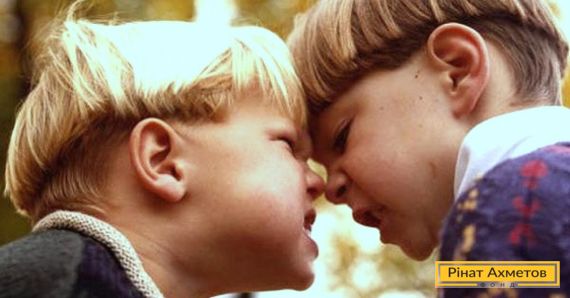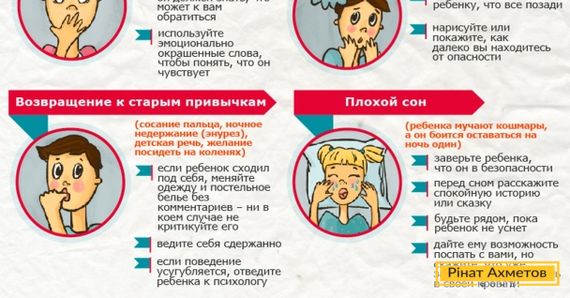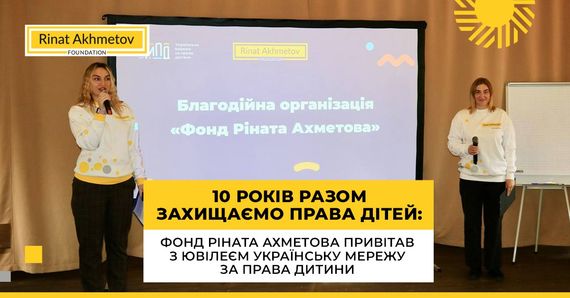PSYCHOLOGIST'S ADVICE TO PARENTS: How to teach your child to resolve conflicts with peers?

Conflicts are an integral part of our lives. Quite often, we perceive the word ‘conflict’ as something that destroys relationships. Conflict itself does not destroy relationships. But the way we behave in conflict can lead to unsatisfactory results. Marina Sorokina, Coordinator of the Psychological Service of the Rinat Akhmetov Humanitarian Centre, explains how to use conflict to build relationships with your opponent.
In psychology, a conflict is any clash of interests. Conflicts are absolutely inevitable and are part of healthy relationships. The needs and interests of one person may be radically different from those of another. This is influenced by a variety of factors.
How to teach a child to resolve a conflict that has already arisen:
- Do we remember that children are our reflection? There is an opinion that parents should avoid conflicts in front of their children. This is not true. First of all, the child will see the tension in the relationship between the parents and will fantasise about reality in dark colours. He will have nowhere to learn that conflict can be constructive. If the child has experience of understanding that mum and dad occasionally disagree with each other, but at the same time do not shout or insult each other, and are able to reach a consensus, the child will gain confidence that conflict is not the end of the relationship, but an opportunity to reach an agreement.
- The second important factor is your own interaction with the child. For example, if you use an authoritarian style of parenting and never negotiate with your child, his or her behaviour in a conflict with peers may be absolutely mirrored, i.e. he or she will stand his or her ground no matter what, or the child will not be able to defend his or her own point of view because he or she is used to being obeyed.
- If your child has a conflict with a peer, if nothing threatens the child's life and health, do not rush to intervene. Perhaps the children will be able to come to an agreement on their own. If this happens, you can discuss it with the child afterwards. Pay attention to what helped to resolve the conflict in a constructive way.
- If you witness a conflict and the child asks for your help, do not take sides immediately. Invite the children to take turns telling you what they see as the cause of the conflict.
- Help children to express the feelings they have experienced during the conflict by using ‘I messages’. ‘I feel hurt when people call me names’, ‘I am upset that my rules of the game didn't work’, ‘I am angry when people take my things without my permission’. Help children not to turn to mutual accusations and insults. Ask the question, ‘How did you feel when Vitya took your pencil case without asking?’
- Do not blame anyone involved in the conflict. After children have shared their feelings, invite them to discuss ways to resolve the conflict. Be patient. Both sides need to have their say. It is important to discuss each of the solutions and to reach a solution that satisfies both parties. Do not rush to offer your own solutions. Listen to the children.
- If a child tells you about a conflict with a peer, do not rush to take the side of your son or daughter. Explain that both parties are involved in conflict situations. Ask your child what he or she said or did to cause the conflict. Do not judge or blame. Your job is to help your child see the feelings and motives of both sides. Conflict can be lost. First look at how the events unfolded, and then think with your child about what you could have said or done to each other to end the conflict in a constructive way.
- If your child has complained about the perpetrator, parents will certainly want to punish the perpetrator. Firstly, do not rush to judgement. You know only one side of the conflict. If the situation looks serious, you should contact the child's parents. In no case do you start to sort things out directly with the offender!
Wisdom and patience to you, dear parents! Remember that the ability to resolve conflicts constructively will help your child use conflict as a new opportunity.



